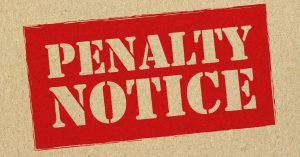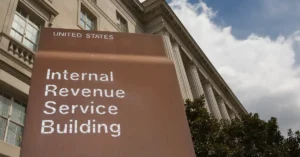In these uncertain times, homeowners may have difficulty paying their mortgages, and in some cases may lose their homes to foreclosure. Come tax season, homeowners often have questions about how a house foreclosure affects their tax liability. In this article, we take look at the potential impact a foreclosure can have on your taxes, and how a tax attorney can help.
The Basics of House Foreclosure
Many Americans purchase a home with the help of a home mortgage loan. The home “secures” the loan, meaning the lender has the legal right to seize and sell the home in the event the borrower defaults on loan payment obligations. This legal process for this seizure and sale is known as “foreclosure”.
Foreclosure takes time, effort, and expense, and non-performing loans impact a lender’s own creditworthiness. Lenders prefer to work with borrowers if they can to avoid the foreclosure process. However, lenders will ultimately resort to foreclosure if they conclude that they have no other option for recovering the money they lent.
The specific process that a lender must follow to foreclose on a home varies from state-to-state, but it typically involves a filing a legal action and complying with strict rules designed to ensure that people do not lose their homes without adequate notice, an opportunity to respond, and (in some states) a chance to cure their loan default.
Provided a lender jumps through the necessary hoops, at the end of the process the court enters a judgment of foreclosure and the lender takes possession of and sells the home, and uses the loan proceeds to repay as much of the loan balance as possible (usually after first deducting fees and expenses of foreclosure). If the sale proceeds exceed the loan balance and expenses, the borrower keeps the remainder. If the sale proceeds are not enough to repay the loan balance, the lender has several non-exclusive options. It can forgive some or all of the remaining debt. It can treat some or all of the remaining debt as still owing and can pursue collection of that amount. And it can negotiate new repayment terms with the borrower.
Tax Implications of House Foreclosure
A foreclosure can impact your personal tax obligations in various ways. From the perspective of the Internal Revenue Service, a foreclosure is a home sale, which means it can result in a gain or loss that is potentially subject to tax treatment. The effect this may have on your taxes depends primarily on your “tax basis” in your house, the unpaid loan balance when a house foreclosure begins, the fair market value of your house (often determined by the foreclosure sale price), how much of the loan debt remains after foreclosure, and how the lender (and you) treat that remaining debt. IRS Publication 4681 offers a detailed, if somewhat complicated, explanation of various scenarios. Below we summarize the key takeaways for the two most common of those.
Scenario 1: The House Foreclosure Covers the Loan Balance, But You Take a Capital Loss
Suppose you bought your home for $500,000, which you financed with a $100,000 down payment and a $400,000 mortgage loan. At the time of foreclosure, the loan balance is $350,000, and the fair market value of the house has dropped to $400,000. For tax purposes, you have a capital loss of $100,000 (the difference between your basis of $500,000 and the fair market value at the time of foreclosure of $400,000). You may have the ability to use this loss to offset other capital gains.
Scenario 2: The Foreclosure Leaves Part of Loan Balance Unpaid, You Take a Capital Loss, But Have Ordinary Income
Now suppose the fair market value of the home you bought for $500,000 has dropped to $325,000, leaving $25,000 of the loan balance unpaid after foreclosure. The lender decides to forgive that $25,000 remainder.
Again, you have a capital loss, this time of $175,000 (Your $500,000 basis minus the $325,000 fair market value at foreclosure), which you may have the ability to offset against capital gains.
However, in this scenario, you have taxable income. That’s right. Counterintuitive as it may seem, going through a house foreclosure can create a tax liability for you. That’s because the IRS treats the amount of any loan balance your lender forgives as “ordinary income” that you have received, taxable in basically the same way as any other income, such as earnings from your employment.

The same applies if the lender forgives just part of the remaining loan balance. If, say, the lender forgives $10,000 and treats the remaining $15,000 as still owing from you, then you have $10,000 of ordinary income to account for in your tax returns.
In other words, be aware that if your mortgage lender forecloses on your home and forgives some of your indebtedness, you may end up owing taxes on the amount of your debt that the lender forgave. This somewhat unpleasant reality comes as a surprise to many people who never imagine that foreclosure could result in taxable income.
How a Tax Lawyer Can Help
As you might imagine, the two scenarios above represent simplified examples of how a house foreclosure might impact a person’s taxes. In reality, the calculations can get significantly more complex (such as when your home has an adjusted tax basis, or a lender offers modified loan terms that have a financial benefit), which can make the potential impact on your taxes less certain and more problematic.
To tackle the sometimes thorny issues associated with staying on the right side of the IRS after a house foreclosure, turn to an experienced, knowledgeable tax attorney. At Silver Tax Group, we have years of collected know-how in guiding clients through the tax implications of life’s infinitely varied circumstances. Contact our team today online or at 855-904-0180 for a free case evaluation. We are known for our fast action and proven results in any foreclosure-related tax matter.








